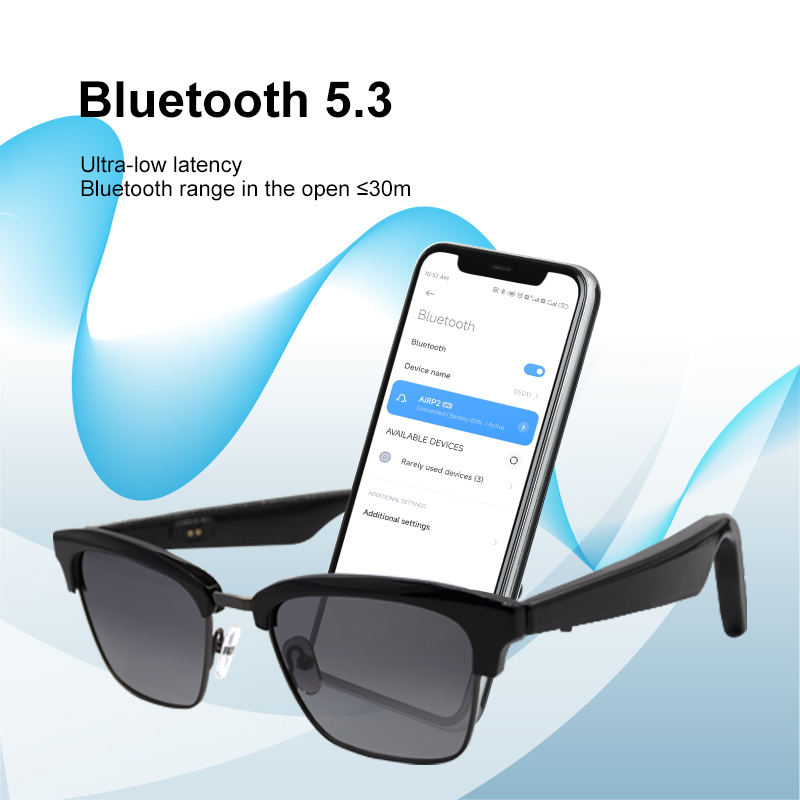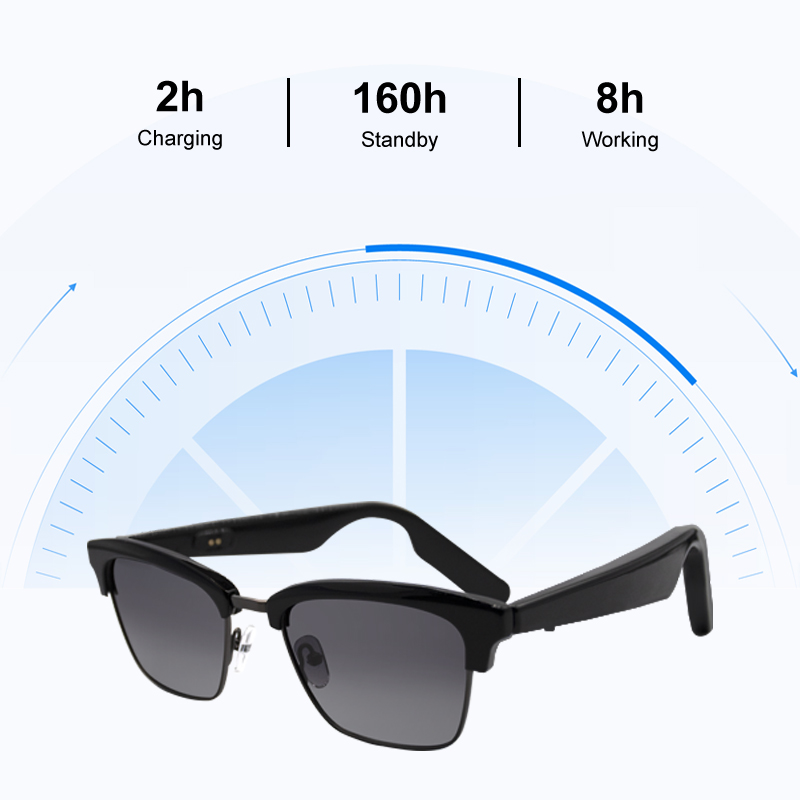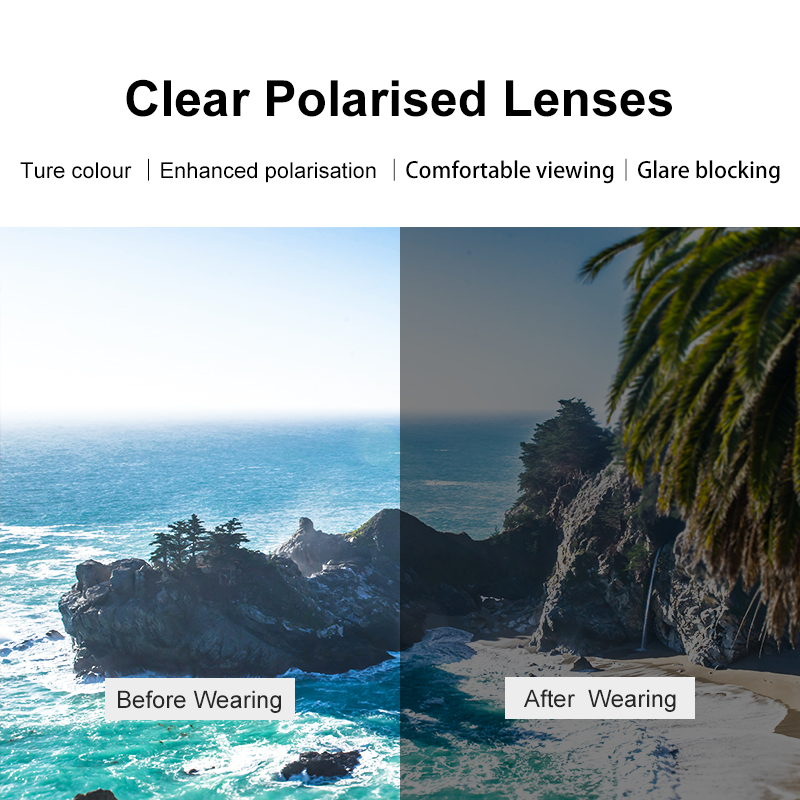- Select Language
AR smart glasses are no longer a futuristic concept—they're already here, enhancing our work, entertainment, and daily lives. With this great innovation comes a huge question: Are AR smart glasses truly secure?
From privacy concerns to data collection risks and personal safety concerns, here's what users need to know before choosing AR smart glasses.

Privacy Challenges: What Data Do AR Glasses Collect?
AR smart glasses rely on cameras, microphones, sensors, and network connectivity to function. While these features enable navigation, facial recognition, and real-time translation, they also mean your device is constantly collecting information.
Data Collected
Visual Data – Photos, videos, and real-time surroundings
Audio Data – Voice commands and ambient sounds
Location Data – GPS tracking for navigation and AR overlays
Usage Data – App usage, browsing patterns, and interaction history
Importance:
Without proper protection, this data could be accessed by unauthorized third parties, advertisers, and even hackers.
How Manufacturers Address Privacy Risks
Prominent AR smart glasses brands (such as Apple, Microsoft, and Hotus) are implementing several measures to protect users:
On-device processing – Sensitive data (such as facial recognition) is processed locally rather than sent to the cloud.
End-to-end encryption – Secure communication between glasses, apps, and servers.
Customizable permissions – Users can control camera, microphone, and GPS access.
Indicator light – Notifies nearby users when recording.
Pro Tip: Before daily use, always review privacy settings and disable unnecessary permissions.
Public Perception and Legal Boundaries
One of the biggest concerns with AR glasses is non-consensual recording. In many countries, secretly recording audio or video in private places is illegal.
Compliance Tip:
Avoid recording in private or sensitive areas (e.g., restrooms, meeting rooms, hospitals).
Use a recording indicator light to maintain transparency.
Before traveling with AR glasses, check local laws and regulations regarding photography and surveillance.
Example:
In the EU, GDPR regulations require explicit consent before collecting personally identifiable data.
Personal Safety: Can wearing AR glasses harm you?
In addition to privacy concerns, AR glasses may also raise ergonomic and health issues.

Common Issues:
Eyestrain – Prolonged use of AR glasses can cause fatigue, especially at high brightness levels.
Neck discomfort – Heavier models can strain neck muscles when worn for extended periods.
Distraction Risk – Using AR navigation while driving or cycling can reduce attention to your surroundings.
How to Minimize Risk:
Follow the 20-20-20 rule (look at an object 20 feet away for 20 seconds every 20 minutes).
Use lightweight models for extended wear.
Avoid using AR features during high-risk activities.
Who Can Access Your Data?
Data collected by AR smart glasses may be accessible to the following:
Manufacturers – for software updates and performance monitoring.
App developers – if third-party apps are installed.
Cloud providers – if your AR glasses store data online.
Security Best Practices:
Keep firmware and apps updated. Use two-factor authentication for linked accounts.
Avoid connecting to public Wi-Fi without a VPN.
How to Choose a Privacy-Focused AR Smart glasses Brand
When purchasing AR smart glasses, look for the following:
A transparent privacy policy (easy to read, no hidden clauses)
Powerful local data processing capabilities
User-controllable storage options
Regular security patch updates
The Bottom Line: Are AR Smart glasses Safe?
Yes—if you choose a reputable brand and proactively manage your privacy and security settings, AR smart glasses are only as secure as their manufacturing process. The technology itself isn't dangerous, but improper use or ignoring privacy controls can pose risks.
In short:
Choose a trustworthy manufacturer.
Always be aware of your surroundings.
Practice good security habits to protect your data.
A Quick Safety Checklist Before Using AR Glasses
Review and adjust privacy settings
Enable encryption whenever possible
Avoid recording in private spaces
Take regular breaks to rest your eyes
Keep the firmware updated

Looking for AR smart glasses for your business or retail store?
We supply wholesale AR smart glasses with global shipping, OEM/ODM customization, and industry-specific solutions for healthcare, manufacturing, and education.
Contact us today to get bulk pricing and free technical consultation.